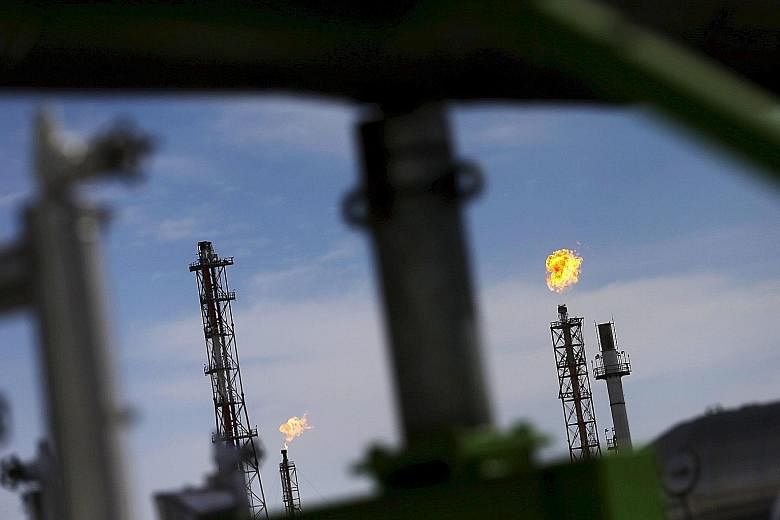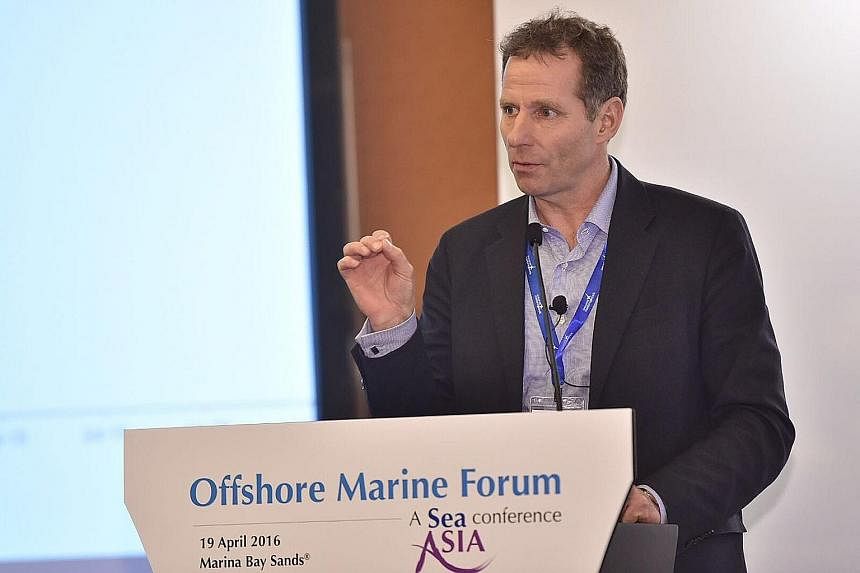Oil could rebound to US$60 to US$70 a barrel by the end of this year as increasing demand starts to cut into the supply glut for the first time in years, according to an industry analyst.
Mr Jarand Rystad told a forum yesterday that with oil companies cutting back heavily on investments, the crude oversupply will quickly turn into shortage and, in turn, drive prices up.
In his keynote speech at the Offshore Marine Forum yesterday, Mr Rystad, managing director of Norwegian-based energy consulting firm Rystad Energy, added that oil could reach US$105 a barrel by 2020.
"This is just a classic commodity cycle... not a structural shift," he said, noting that global oil consumption is still robust, while alternatives such as liquefied natural gas will likely have a visible impact on energy demand patterns only decades later.
But the bigger worry, he warned, is that the massive investment cutbacks could lead to another period of cost inflation. "It is very dangerous to start to scale the industry," he said, citing how oil companies are adjusting their capacity to only a quarter of what it needs to be on a sustainable basis.
"Oil companies and oil service companies are laying off too many people. If you're starting to scale, you will end up with far too low a capacity. Then you'll have to hire new people (when the industry recovers) and then you're back to the problem of cost inflation."
His advice: Cut costs but hold on to core competencies.
"Shareholders must accept they shouldn't have dividends this year. They should encourage their companies to invest in future projects."
He expects to see new growth in offshore exploration and production activity from next year, although the oversupply of rigs will likely persist until 2019 or 2020.
Meanwhile, Mr Chow Yew Yuen, chief executive of Keppel Offshore & Marine - the world's top rig-builder - said the company is looking to diversify its business.
"We're looking at some non-oil and gas-related projects where we are able to use our offshore technology," said Mr Chow, one of the panellists at a discussion at the forum.
He noted that such projects, which could involve power and desalination, will help keep Keppel profitable, given the low oil prices.
Around 150 industry leaders attended the Offshore Marine Forum yesterday, a key event of Singapore Maritime Week.



